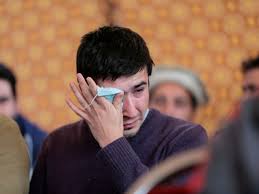They believe that engine failure “should not have led to the plane crash as the aircraft was still flyable on the operative engine”.
Pakistan International Airlines’ flight PK-661 crashed on the way to Islamabad from Chitral on Wednesday.
Air Marshal (retd) Shahid Lateef insisted that the crash could have been avoided. According to him, the aircraft could still fly if one of its engines failed, adding that the aircraft could then be diverted to a nearby airfield for an emergency landing.
“Since it was a single engine failure, as we know, the captain of the aircraft should have flown and landed it safely. The aircraft does not even require a proper landing strip in case of emergency landing. The aircraft captain should have handled the emergency in a proper manner.”
He said that he believed that the crash had occurred because of pilot error, adding that pilots were unable to cope with the emergency situation.
“The crash also may have occurred because of lack of coordination between the pilot and co-pilot,” Lateef added.
Highlighting plane crashes under unavoidable circumstances, he said that if the aircraft caught fire and burnt in midair, it was considered ‘unavoidable circumstances’.
Another UK-based Pakistani aviation expert Malik Riz Awan said that although this was the first air crash in Pakistan, one needed to rule out a few things before making any assertion.
“The possibility of a lightning strike or storm must be ruled out. The last message sent by the captain to the control tower is also very important,” he said.
Agreeing with the assertion that multi-engine aircraft were capable of flying with just one working engine, he said that the pilot only needed to “adjust the throttle and control fuel flow”.
Informing that investigation into aircraft crashes generally took months to complete, he said that the aircraft’s load factor also needed to be checked, adding that improper loading might create a fatal center of gravity.
He claimed that even if the “aircraft is out of fuel, it may fly for 20 minutes”.
AirBlue Crash Affectees Association (ACAA) and Bhoja Air Crash Families Association demanded a transparent and impartial investigation into the latest crash on Thursday. They said that the probe should not be under the influence of the Civil Aviation Authority (CAA).
Stressing the need for compiling the report as soon as possible, they said they were disappointed with the attitudes of carriers and regulators of civil aviation matters.
They said that over the past six years, there have been a number of accidents in the country in which more than 350 lives had been lost.
“This latest tragedy has once again exposed the gaping holes in the system and standard operating procedures currently in place (or lack thereof) in the (domestic) civil aviation sector,” they said.

